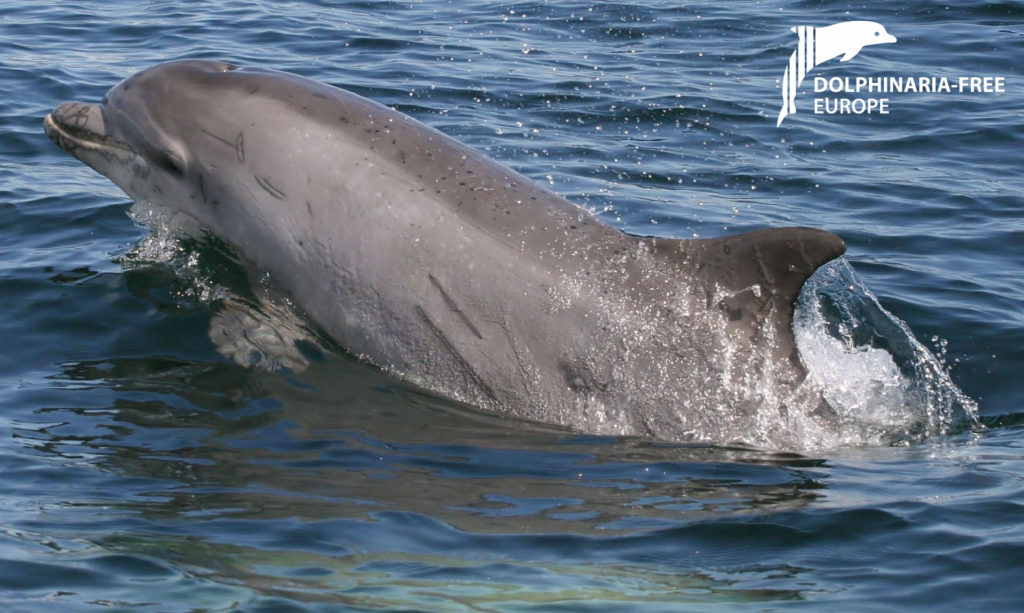
Scientific evidence supports that cetaceans are not suitable for keeping in captivity. A number of scientists have signed onto the following statement in 2016. If you would like to join them, please contact DFE and we will provide you with details on how to become a signatory.
Scientists’ Statement Regarding Captive Cetaceans
Odontocetes (toothed whales, dolphins and porpoises) are among the most intelligent and socially complex mammals.(1) As marine mammal biologists, we believe that odontocete species inherently cannot fully adapt to confinement in zoos and aquariums. All odontocetes are wide-ranging and share certain biological and ecological characteristics that do not allow them to thrive in zoos and aquariums,(2) and this is particularly true for the larger species such as orcas (Orcinus orca).
When dolphins were first commercially displayed to the public some 80 years ago, the world knew little about their ecology and behavior. Much of what researchers learned about odontocetes in the following decades came from studying them in captivity. However, studies on free-ranging animals, starting in the late 1960s and early 1970s and continuing to today, have greatly expanded knowledge on odontocete biology and ecology. At a minimum, the maintenance of odontocetes in commercial captive display facilities for entertainment purposes is no longer supported or justified by the growing body of science on their biological needs.
(1) See, e.g., Hooker, S. 2009. Toothed whales, overview. Pp. 1252-1260, In: W.F. Perrin, B. Wursig, and J.K. Thewissen (eds.) Encyclopedia of Marine Mammals (2nd edition), Academic Press: New York, NY. 1316 pp;
Mann, J., Connor, R.C., Tyack, P.L., and Whitehead, H. (eds.) 2000. Cetacean Societies, University of Chicago Press: Chicago. 433 pp;
Marino, L., Butti, C., Connor, R.C., Fordyce, R.E., Herman, L.M., Hof, P.R., Lefebvre, L., Lusseau, D., McCowan, B., Nimchinsky, E.A., Pack, A.A., Reidenberg, J.S., Reiss. D., Rendell, L., Uhen, M.D., Van der Gucht, E., and Whitehead, H. 2008. A claim in search of evidence: reply to Manger’s thermogenesis hypothesis of cetacean brain structure. Biol. Rev. 83: 417-440.
(2) See, e.g., Clubb, R. and Mason, M. 2003. Captivity effects on wide-ranging carnivores. Nature 425: 473-474;
Forcada, J. 2009. Distribution. Pp. 327-333, In: W.F. Perrin, B. Wursig, and J.K. Thewissen (eds.) Encyclopedia of Marine Mammals (2nd edition), Academic Press: New York, NY. 1316 pp;
Jett, J. and Ventre, J. 2012. Orca (Orcinus orca) captivity and vulnerability to mosquito-transmitted viruses. J. Mar. Animals Ecol. 5: 9-16;
Jett, J. and Ventre, J. 2015. Captive killer whale (Orcinus orca) survival. Mar. Mamm. Sci. 31: 1362-1377;
Small, R.J. and DeMaster, D.P. 1995. Survival of five species of captive marine mammals. Mar. Mamm. Sci. 11: 209-226;
Ugaz, C., Valdez, R.A., Romano, M.C., and Galindo, F. 2013. Behavior and salivary cortisol of captive dolphins (Tursiops truncatus) kept in open and closed facilities. J. Vet. Beh. 8: 285-290.
Scientists statement on captive cetaceans 2016
Signed:
Giuseppe Notarbartolo di Sciara, Ph.D., Tethys Research Institute
Samuel Hung, Ph.D., Hong Kong Dolphin Conservation Society
Hal Whitehead, Ph.D., Dalhousie University
Lindy Weilgart, Ph.D., Dalhousie University
Thomas I. White, Ph.D., Loyola Marymount University
John H. Schacke, Ph.D., University of Georgia
Maddalena Bearzi, Ph.D., Ocean Conservation Society
Giovanni Bearzi, Ph.D., Dolphin Biology and Conservation
Joan Gonzalvo, Ph.D., Tethys Research Institute
Erich Hoyt, Whale and Dolphin Conservation (WDC)
E.C.M. Parsons, Ph.D., George Mason University
Toni Frohoff, Ph.D., In Defense of Animals
Heather Rally, D.V.M., People for the Ethical Treatment of Animals
Silvia Frey, Ph.D., OceanCare
Pierre Gallego, D.V.M. Odyssea
Deborah Giles, PhD., University of California Davis
Mark Peter Simmonds, O.B.E., Humane Society International
Naomi A. Rose, Ph.D., Animal Welfare Institute
Ingrid N. Visser, Ph.D., Orca Research Trust
Lori Marino, Ph.D., Kimmela Center for Animal Advocacy
Alexandros Frantzis, Ph.D., Director of Pelagos Institute for Cetacean Research

